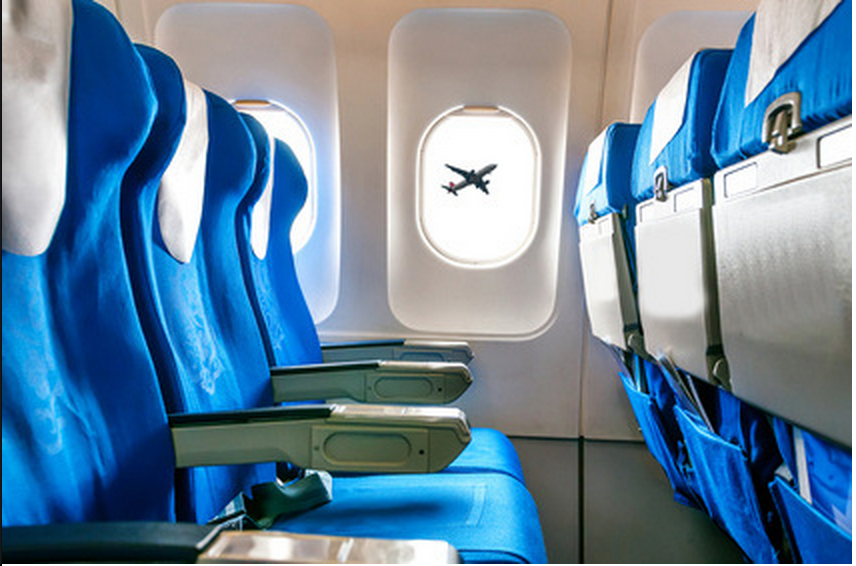What Would Buddha Do On Southwest Airlines?
A client of mine, Jen, recently took a flight from Florida to New York on Southwest Airlines for the first time. Those of you who have flown with Southwest know there is no assigned seating, but the airline does provide the option of paying an extra fee to get on the plane before other passengers to choose your own seat. Jen chose not to take advantage of this policy, and when she boarded for her seat her choices were limited, not only because other passengers had paid the early boarding fee, but because they were saving seats for others who had not yet boarded. Apparently, one person in a group of those travelling had paid the fee and saved seats for others who had not paid. Jen was pretty annoyed by this and when she came back from her trip, she asked me what I thought about it–“From a more spiritual perspective,” she said.
Not wanting to pass a snap judgment, I paused in Maybe. Her Southwest Airlines experience reminded me of a story my friend Elizabeth shared with me one time and I told Jen the story. Elizabeth was having lunch in New York City with her good friend Sharon Saltzberg, a well-known Buddhist teacher. They were in a cafeteria-style restaurant where you wait on line to get your food and then hope to find a seat somewhere in the restaurant. When my friend Elizabeth got on line with Sharon, she saw how crowded the restaurant was. So she told Sharon what she wanted to eat, and suggested she find them seats while Sharon waited on line and ordered. Sharon replied, “If you sit down now before we get our food, where will everyone in front of us on the line sit?” Elizabeth became very quiet and realized for the first time how uncaring for others it was to sit before the people in front of her on line had a chance to find a seat. She realized that she was focusing on her own needs and not the needs of others. She thought about how society needs individuals to put others first in order to flourish.
Elizabeth is one of the nicest people that I know and she was not deliberately trying to prevent others from sitting down and enjoying a meal. She was just thinking about her lunch date with Sharon and forgot to connect with the needs of other people in the restaurant as well. Although at first glance the actions of some of the Southwest passengers are a little more aggressive than Elizabeth’s impulse, the stories are actually quite similar. Like Elizabeth, the people who were breaking the seating rules of Southwest Airlines probably didn’t think they were rude or bad people. They were simply putting their needs and desires first, believing they could save money and still sit with their friends, not thinking about how it could affect anyone else. In short, they weren’t acting in a way that fostered a more successful, loving and kind society.
So what would Buddha do on Southwest Airlines? He probably wouldn’t ask a friend to pay a fee so he could get a better seat for free. I suspect he would wait his turn, be kind to the people in line in front of and behind him, and be grateful he had a plane ride home to see his family. I doubt he would worry much about the location of his seat. He would probably even bless the passengers who saved the seats for their friends. Maybe he would meditate on the idea that one day all passengers could realize there were enough seats for everyone and learn to share or take their rightful turns. The Buddha would know that if everyone chose love over the fear of not having something, they would truly feel the joy of being alive. He would understand that this joy was better than the joy of getting a better seat than a fellow human being.
How do these examples apply to all of us? Most of us take our turn when we merge in traffic, hold the elevator door for our neighbors and wait patiently in a line at the bank or post office. We may be thinking we’d never act like some of the Southwest passengers who tried to bend the rules for their own gain. But my friend Elizabeth once thought the same thing of herself. Sometimes the way we tend to put ourselves first is invisible to us. But Maybe we can make the invisible visible to ourselves, and in so doing contribute to a more caring and compassionate society.
Maybe we can stretch ourselves to look at areas in our lives where we move so quickly and are only thinking about what we need to do and where we need to go. Maybe we can find an opportunity to be more kind and considerate to the ones around us. On reflection, I realize that, while I would never literally take someone else’s seat on a plane or in a restaurant, I do tend to grab a seat with a friend before I order us coffee at my favorite café. Also, I sometimes talk on my cell phone when I am walking outside and am less considerate than I want to be to the ones around me. I see, too, that when I am busy, I am less likely to stop and ask my neighbors how they are doing. These are simply some examples from my own life, but I am sure we can all identify areas in our lives where we can slow down and be kinder to those around us. Maybe it’s just a matter of being more aware that we are all in this “line” or “plane” as the case may be…together.
